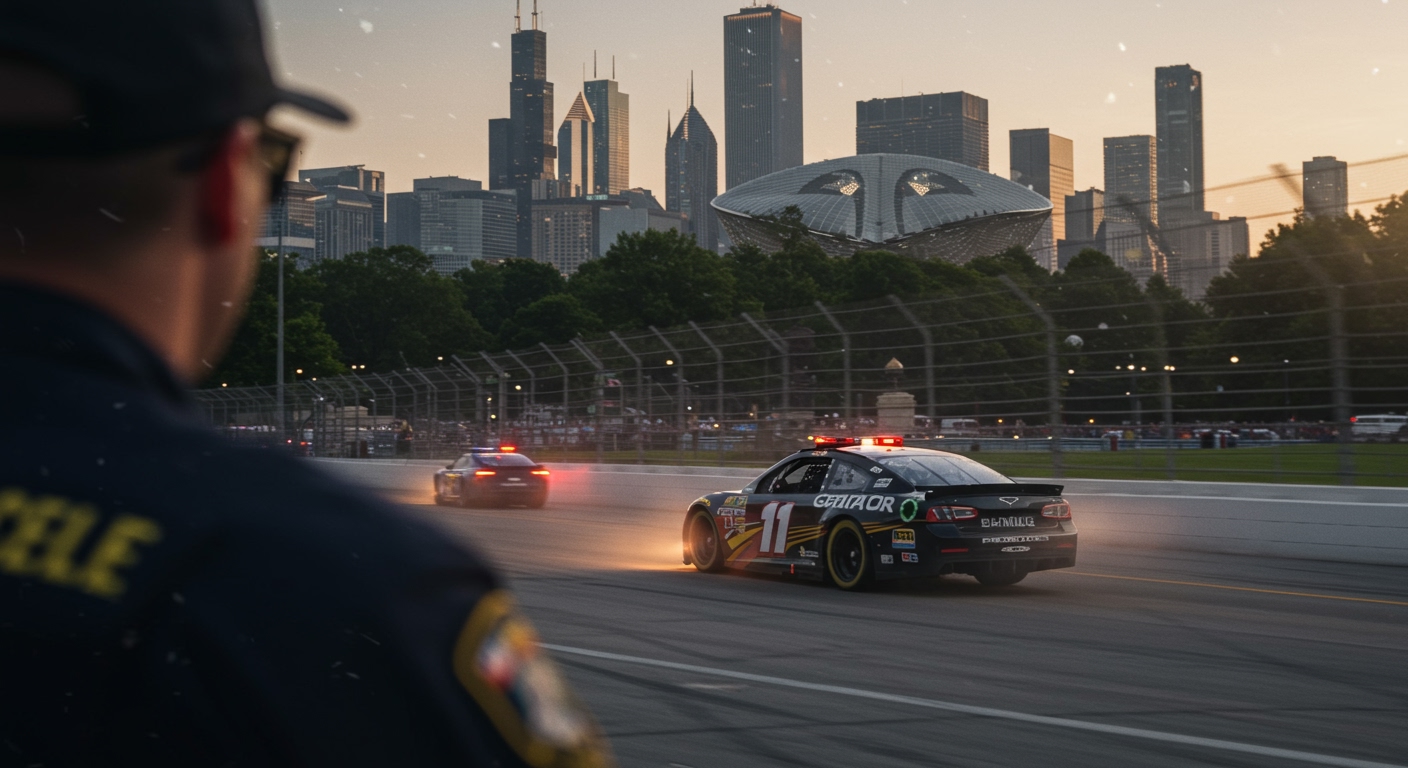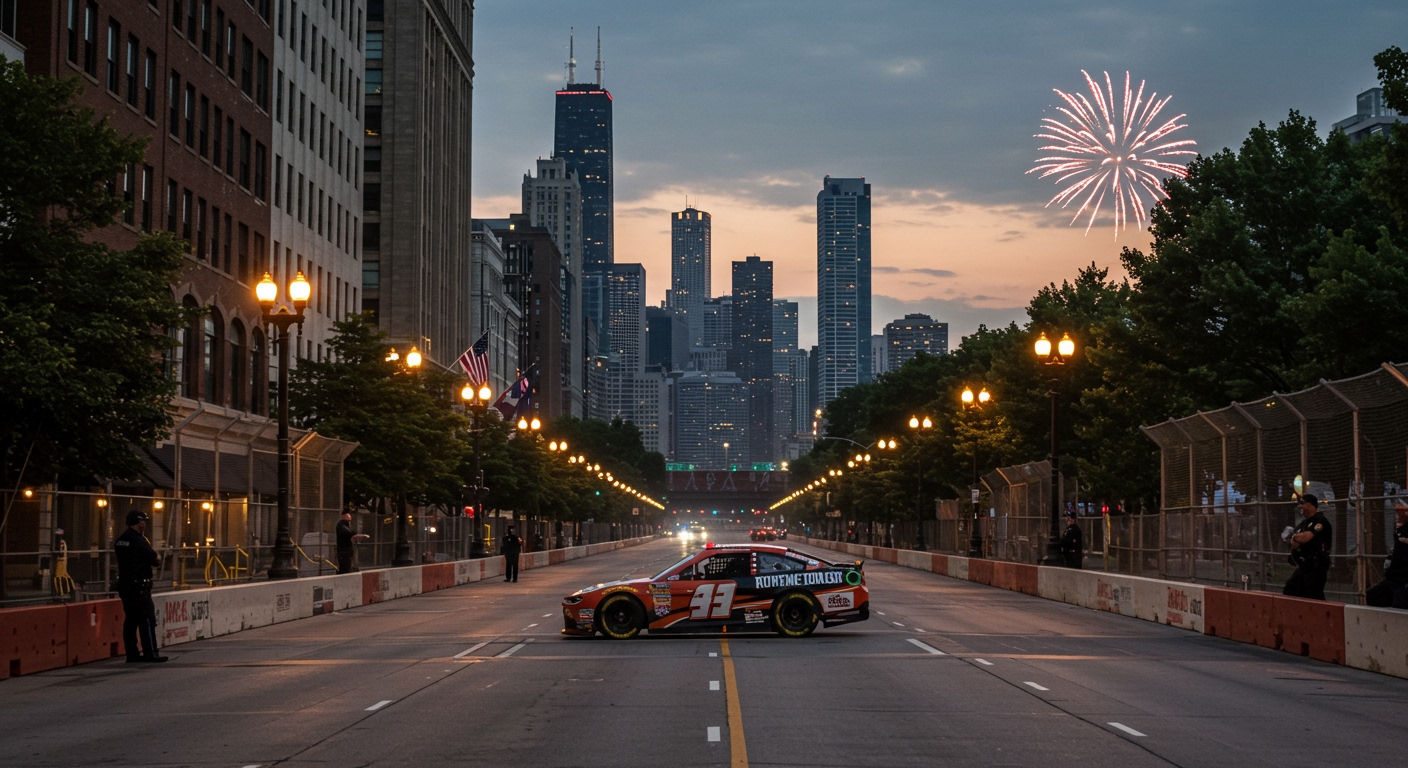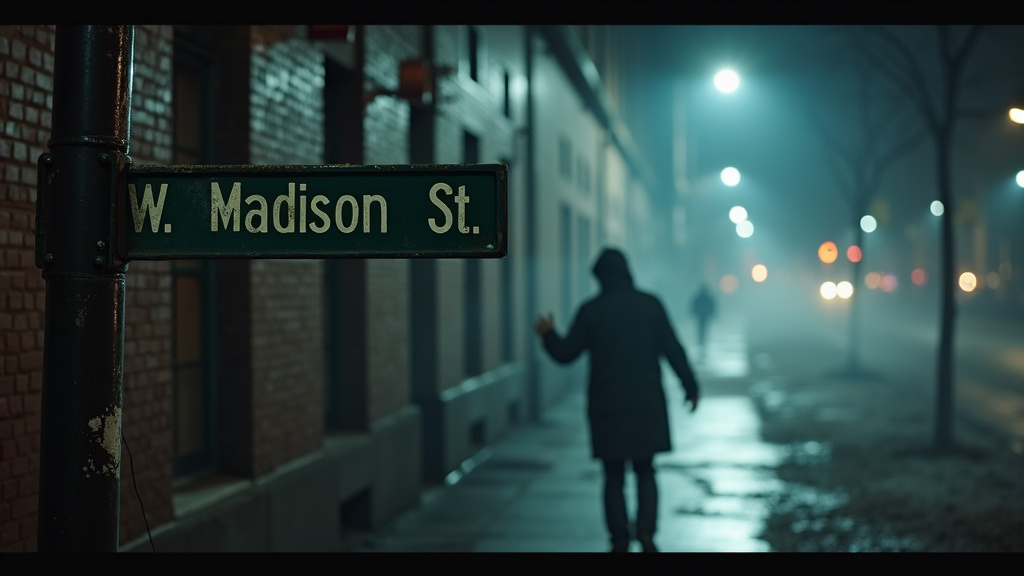CHICAGO – The future of NASCAR racing in Chicago appears to hinge significantly on its timing, according to a recent opinion from the Chicago Tribune Editorial Board. While acknowledging the potential long-term benefits of the street race, the board has firmly stated that its continuation should be contingent upon rescheduling it away from the Fourth of July weekend.
This stance aligns, in part, with concerns raised by Chicago Mayor Brandon Johnson, who, while open to potentially extending the race’s presence in the city, has expressed reservations about the current holiday timing.
The Strained Holiday Weekend
The crux of the Editorial Board’s argument rests on the significant demands placed upon city resources during the Fourth of July period. They contend that holding a major event like the NASCAR race on this specific weekend stretches the capabilities of departments, particularly the Chicago Police Department (CPD), too thinly. This period is historically one of the most violent times of the year in the city, necessitating the full and uncompromised focus of law enforcement on public safety across all neighborhoods.
The board emphasizes that diverting CPD resources to manage the logistics, security, and crowd control for a large-scale sporting event in the downtown area during such a critical public safety period is detrimental to the city’s overall security posture.
Balancing Benefits Against Disruption
The Editorial Board did not dismiss the advantages the NASCAR race brings to Chicago. They acknowledged the marketing value derived from showcasing the city’s iconic skyline with Grant Park as the backdrop for the race. They also recognized a “non-fiscal value” to the city, suggesting benefits beyond immediate financial return, perhaps related to enhancing Chicago’s image as a destination for major events.
However, these perceived benefits were weighed against the substantial inconvenience caused by the race’s current timing and location. The board argued that the disruption faced by downtown residents and other city inhabitants during a major holiday weekend, typically reserved for local celebrations, family gatherings, and reduced urban activity, outweighs the benefits derived from the race if the date remains unchanged.
Financial Implications and Public Return
Regarding the financial aspect, the Editorial Board pointed out that the city government “essentially broke even on NASCAR” last year. This assessment suggests that the race, in its inaugural running, did not represent a significant financial boon for the city’s coffers. For an event that imposes considerable logistical and resource costs, a near break-even financial outcome reinforces the board’s view that the non-financial costs, particularly the strain on public safety resources during a critical weekend, become even more significant factors in evaluating its overall value.
The lack of a substantial financial windfall, combined with the strain on essential services and public inconvenience, led the board to conclude that the current arrangement is suboptimal for Chicago.
A Path Forward: Rescheduling
The pathway proposed by the Chicago Tribune Editorial Board for NASCAR’s continued presence is a simple, yet potentially complex, negotiation: find an alternative weekend. The board posited that if NASCAR and the city could reach an agreement on a different date, the balance of costs and benefits would shift positively.
Under such a scenario, the marketing value and non-fiscal benefits of hosting a major international event could potentially exceed the costs and disruptions, which would ideally be mitigated by scheduling the event during a less critical period for public safety and a less disruptive time for residents.
Mayor Brandon Johnson’s openness to an extension, coupled with his stated concerns about the current date, suggests a potential willingness within city leadership to explore alternatives. The dialogue between the city and NASCAR regarding the future race schedule and location will likely need to address these specific points, particularly the calendar timing, to ensure the event can continue in a manner that is mutually beneficial and aligns with Chicago’s public safety priorities and residential quality of life.













